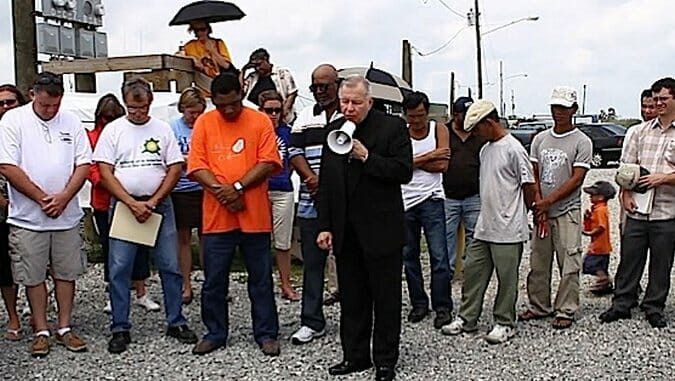Vanishing Pearls

The importance of a film like Vanishing Pearls is immeasurable. In 2014, when racism and classism are alive, well, and often sanctioned by the American government, Nailah Jefferson’s first documentary deserves a spot alongside works like Ken and Sarah Burns’s The Central Park Five and Spike Lee’s When the Levees Broke. Another film concerned with giving voice to a voiceless community that was forgotten when tragedy struck, Vanishing Pearls introduces audiences to a historical, once-independent Louisiana fishing town. This community was not only destroyed by the massive BP oil spill, but its residents were further disenfranchised when the U.S. government got involved.
Jefferson begins her investigation with a look back at the initial response to the BP oil spill from scientists, politicians and BP officials themselves. A national investigation showed that the problems did not begin with the spill itself, but with the very presence of all of the oil rigs in the Gulf of Mexico. Similar to the events leading up to Hurricane Katrina, proper steps had not been taken to avoid or prepare for such a disaster. Vanishing Pearls shows that this lack of preparation was not merely an oversight; it was intentional, a way of doing things cheaply without regard for the lives at stake. As one specialist explained, BP and the agencies who stood with them after the spill were interested in privatizing the profit, while socializing the risk. In terms of the oil rigs, if all went well only BP and their stockholders stood to make huge gains, but if things went badly—like, massive oil spill destroying entire fishing communities and have lasting negative repercussions on sea life—only the individuals and the animals that provided them with their very livelihood would be affected.
Jefferson hones in on one particular group of fisherman, aptly narrowing the lens of her film. The oyster community of Pointe à la Hache, La., has a rich history in African-American oystermen. These men and their forefathers spent decades fighting a racist Louisiana government and made great strides, moving from a sharecropping-type work experience to an independent and successful network of fisherman.
-

-

-

-

-

-

-

-

-

-

-

-

-

-

-

-

-

-

-

-

-

-

-

-

-

-

-

-

-

-

-

-

-

-

-

-

-

-

-

-








































